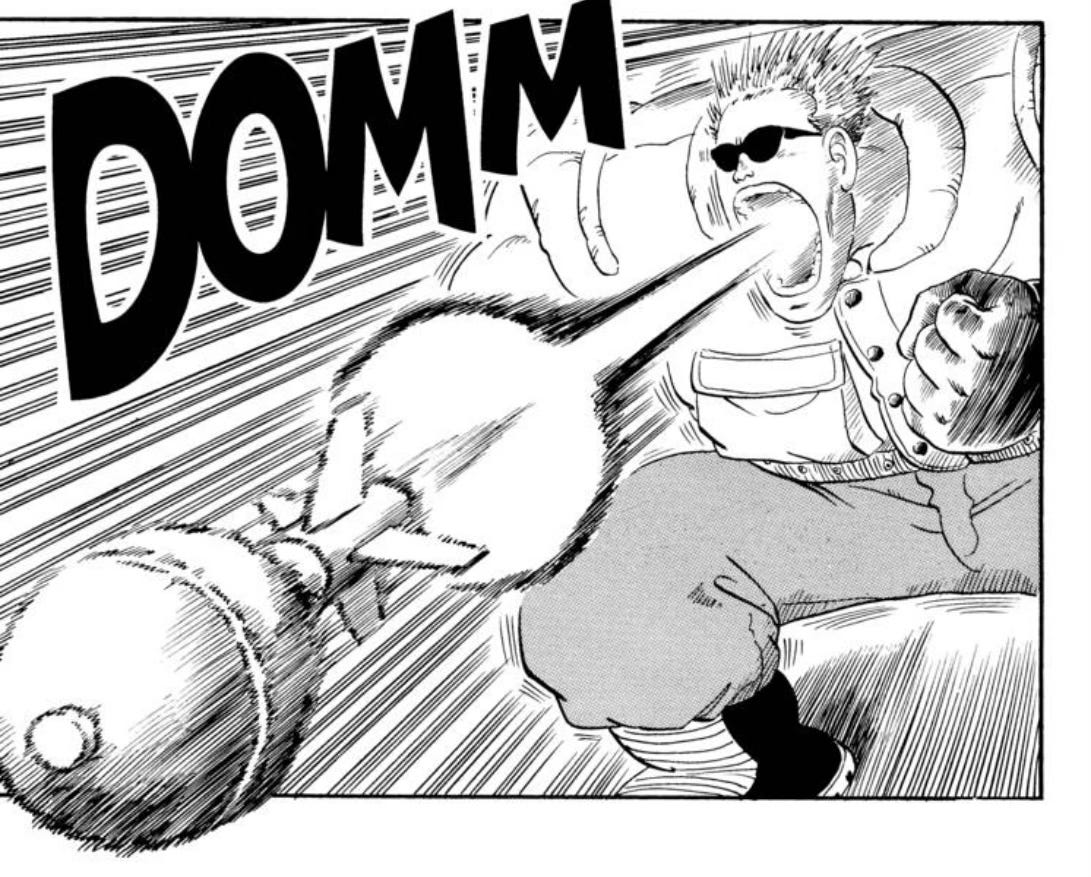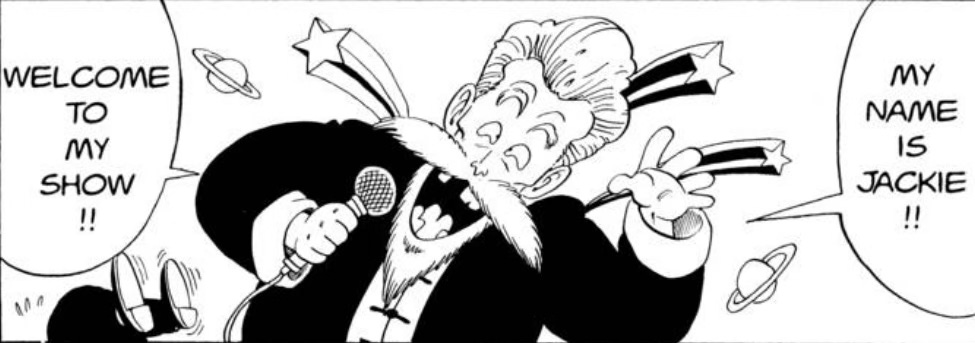Preface!
I have an amusing story to share about my relationship with Dragon Ball. Amusing to me, at least. As we know, I was late to the manga and anime game, but before I hit my stride in this wonderland of storytelling, I did try to watch Dragon Ball. I’d watch it on my phone when running on a treadmill at the gym.
Mere episodes in, Goku patting people’s crotches had me looking over my shoulder to make sure no one was watching me watch this weird little kid on the screen, checking for people’s private parts. It made me that uncomfortable. I didn’t know where it would go from there, but patting people’s crotches was not the start I was looking for.
So I stopped watching. And that was that.
Since finding my way more into manga and anime, not having read or watched Dragon Ball became something like a badge of shame, so I started reading Dragon Ball. I feel like my life would have been exponentially better if I’d had this story in my life earlier. Crotch patting and all.
Preface over.
There’s writing advice everywhere. Do this, don’t do that, it’s nauseating. For the record, and this is a hill I’ll die on, any writing advice that is prescriptive, “you have to do this” is absolute garbage. There is nothing you have to do to be a writer. Everyone’s process is different, and yours is no exception.
That said! (There’s always an exception.) There is one piece of writing advice that changed my life, and I only received within the last like… year. The advice was to stop listening to all the rules I’d created for myself, or rules the industry puts on stories… stop thinking about what a story should be and just tell a story the way I want to tell it.
For me, that meant no chapters, no established reality, a lot of hard cuts in the middle of scenes, and so much tomfoolery that I couldn’t not have fun writing it.
It’s my story, I make the rules.
I’m still new to the Dragon Ball universe, but I’ve never seen a better example of embodying that exact premise than this masterpiece of wackiness.
Before we get into Dragon Ball, here’s what you need to know.
Son Goku, a weird kid with a tail who’s raised himself, essentially, stumbles on a girl named Bulma, who’s searching for the seven Dragon Balls. If you collect them all, you summon a dragon that grants you one wish. That’s the launching point for the whole story. Along the way, Goku has misadventures, meets a master to teach him how to fight, makes some fun friends, and honestly, if you’re coming to Dragon Ball for the intricate plot, you’re in the wrong place, so that’s really all you need to know.
I’ve never been so enamored with a story’s ability to do whatever the hell it wants to do like I’ve been with Dragon Ball. A pacifist Frankenstein robot? Dragon Ball has that. Pterodactyl kung fu masters? Dragon Ball has that. A woman who changes personalities every time she sneezes? Dragon Ball has that.
So much of Dragon Ball feels random. Sporadic. Chaotic. When Goku is in his first serious kung fu tournament and he gets put in an inescapable situation, his tail grows back. All of a sudden, it’s just there again. After it fell off earlier, which felt, to me, like Dragon Ball was just purging itself of the weirdness of his tail. I was wrong.
There are no explanations for the things you see in Dragon Ball. No backstories as to why there are dog humans walking around, or why there’s a magical cloud that only the pure of heart can ride, or why a turtle has to police an old karate master’s obsession with pretty women.
All I kept thinking as I was experiencing these random juxtapositions is the rash of over-explaining that seems to be spreading through a lot of modern manga. Granted, Dragon Ball is its own thing, its own tone, its own style, but still. A series like Jujutsu Kaisen goes painfully deep into explaining every little detail. For what?
Not everything needs an answer. Not every character needs a backstory. Not every magical flourish needs an origin tome.
There’s a famous quote from Robert Frost that I’m going to add to. He said, “No tears in the writer, no tears in the reader. No surprise in the writer, no surprise in the reader.”
My addition: No fun in the writer, no fun in the reader.
It’s okay to just have fun. To just go where the story wants to go. There is never any doubt in the reading of Dragon Ball that Akira Toriyama was having fun. Not a shred of doubt. And because of that, it’s immensely fun to read. Not once have I stopped to wonder why something is the way it is, I’m just here for the ride.
But!
This isn’t just time for me to gush over Dragon Ball, though I may end up doing that again before the end. Sure, you can have fun and go wherever you want to go, but that doesn’t mean you shouldn’t have any consistencies or through lines. Even Dragon Ball holds itself true when needed. Almost like it keeps track of its own madness.
It’s not like they cut off Goku’s tail and then never speak of it again. It comes back later on. When the magical cloud gets blown up by a rocket launcher, it comes back later on… because it’s a magic cloud. And thanks to a concrete objective, nothing is ever too far out of left field. It’s always pointing in the same direction.
The risk of having “no rules” is if things do start to feel a tad too random. If things come and go without any real consistency. There’s a difference between being unexpected and being completely untethered.
In Monty Python’s And Now For Something Completely Different, that’s literally the M.O. It exists to be unexpected. But even amidst that humor masterclass, you won’t find a plot. Maybe plots within the vignettes, but even that is hard to find. It’s difficult to maintain any sort of storyline if you’re too random, but Dragon Ball never gets that random. It has the baseline requirements for a cohesive plot. It has an endgame. It has fun character dynamics. And that’s all it needs.
Which really begs the question, how much does a story really need to work? And there’s no answer to that. Just the answer I was given, that I hope you’ll take from this as well — your story, your rules.









Villains of consecutive arcs of Dragon Ball are alien Hitler, a time-traveling homunculus and an ancient force of cosmic evil. Toriyama throws the most random shit ever into the series and it just works. I think Yukinobu also shares that aspect, and what makes their stories so great is that they aren’t afraid to go nuts.
I really like this take. I think a lot of creative would benefit from reading it. You've also mirrored and really fined some thoughts I had with my storytelling. I think it's really damaging when advice gets contorted into axioms, all because a well meaning MFA prof. wanted to save you from your own mistakes.
It's a fine line to walk, with craft on one side, and love on the other.
I'm definitely quoting your add on to Hemingway, by the way.